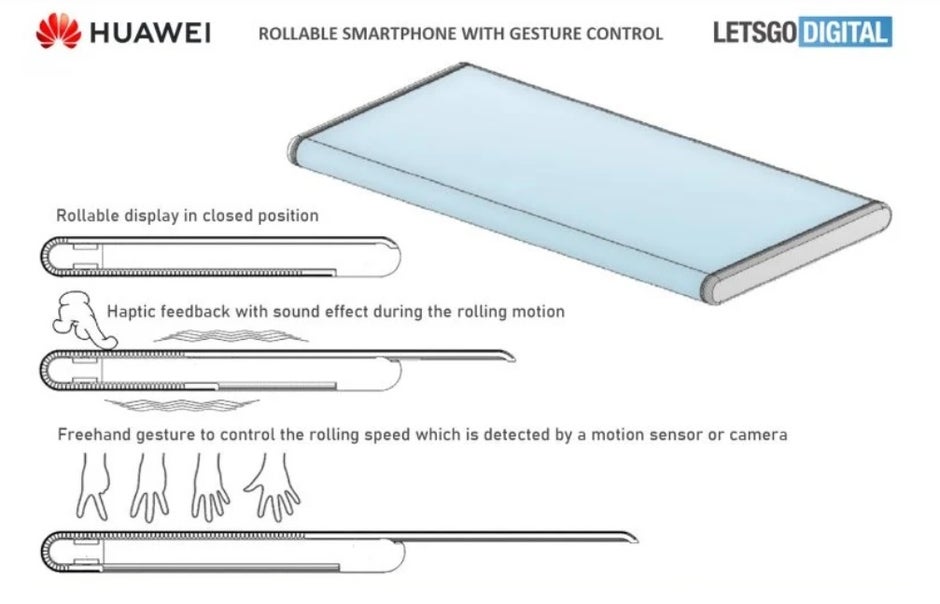Huawei files a patent for a rollable device that uses haptic feedback and sound effects
Technizo Concept created the concept renders that were published by LetsGo Digital. The Galaxy Z Slide might look very much like Huawei’s rollable design, but it only has two positions to choose from: open and closed. It lacks the second position that falls between the screen being closed and the screen being fully opened.
The advantage of a rollable is that there is no crease that breaks up the smooth rollable display
Another advantage of using Huawei’s rollable is that it doesn’t require a front-facing camera or a separate selfie camera. On the back of the handset is a large screen with an island containing three different cameras.
The patent was submitted to the World Intellectual Property Organization (WIPO) and is titled “‘Controllable foldable display with haptic and sound effect.” The technology involved will allow users of the rollable device to roll out the screen through the use of hand gestures (called “freehand gesture control” by Huawei) or by using the touch screen. A virtual slider on the screen can be used to help make the display larger or smaller.
Haptic feedback will be used along with sound effects to make the user aware that the screen is being extended or is shrinking, The speed at which the screen extends or rolls back can be controlled by holding up two, three, four, or even five fingers. A camera sends this information to a sensor which adjusts how fast the screen is rolling,


